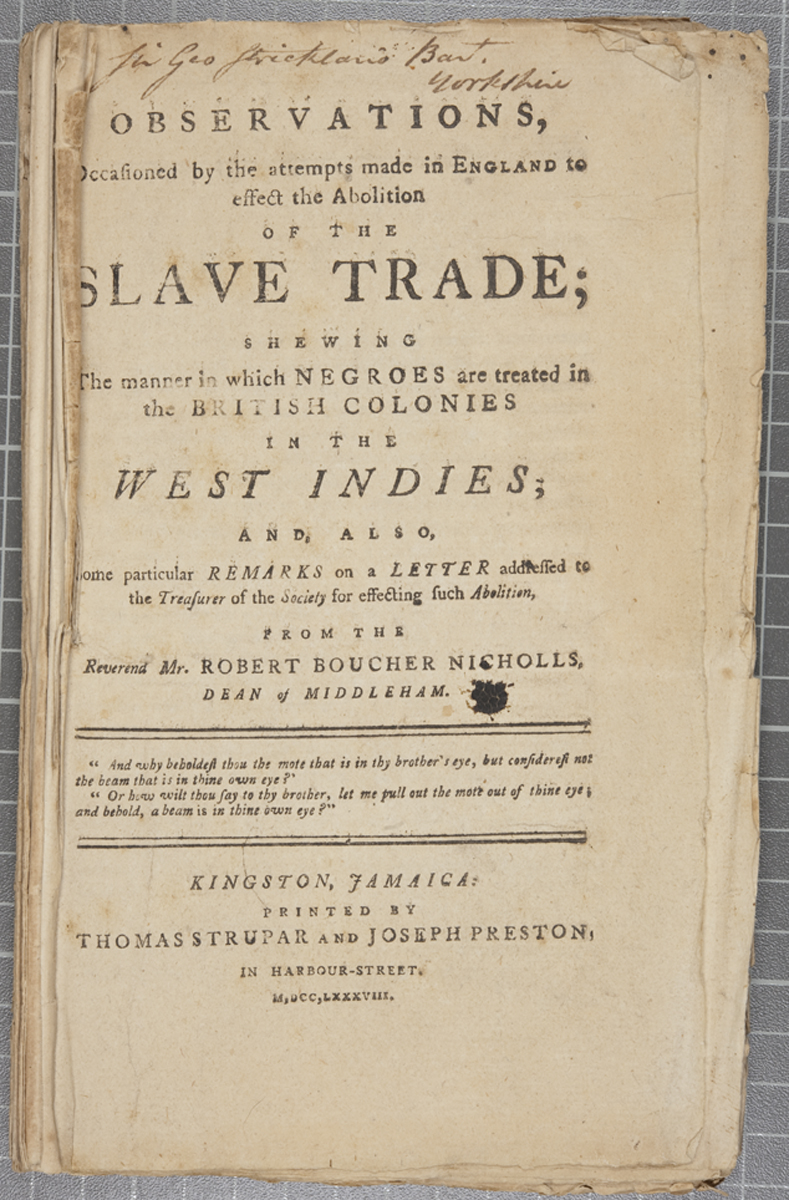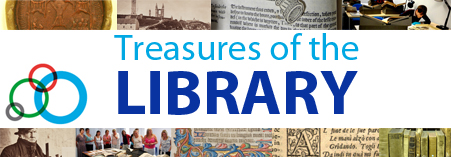Treasures of the Library podcast: Professor Lorna Milne on Francklyn’s Observations of the slave trade
In the summer of 2013, the University Library set out to capture the reactions of academic and library staff when encountering their favourite items from the Special Collections Division. For this project, authors for articles for Treasures of St Andrews University Library (London, 2010) were asked to speak about the item or collection they highlighted in this publication.
In this first Treasures of the Library podcast, Professor Lorna Milne talks about Gilbert Francklyn’s Observations, occasioned by the attempts made in England to effect the abolition of the slave trade. Printed in Kingston, Jamaica in 1788, this very rare pamphlet offers an apologia for the slave trade, claiming that those who called for its abolition were guilty of ‘calumnies’, and that the treatment of slaves was largely benevolent. In the modern age Franklyn’s Observations make very uncomfortable reading, but as a window into the mind of the West Indian plantation owner in the dying decades of slavery is it a fascinating historical document. This is unlike many of our rare books: it is a slender, paper-bound pamphlet, unillustrated, unprepossessing, yellowed and curled with age. And yet it is one of only a handful of extant copies: its very ephemerality makes its survival all the more remarkable.

The article written by Professor Milne about this item is to be found on pp. 98-99 of Treasures of St Andrews University Library (London, 2010). This short video is one of several which have been made based on the book. The entire set, which will be added to periodically, is available on the University of St Andrews Library YouTube channel.
